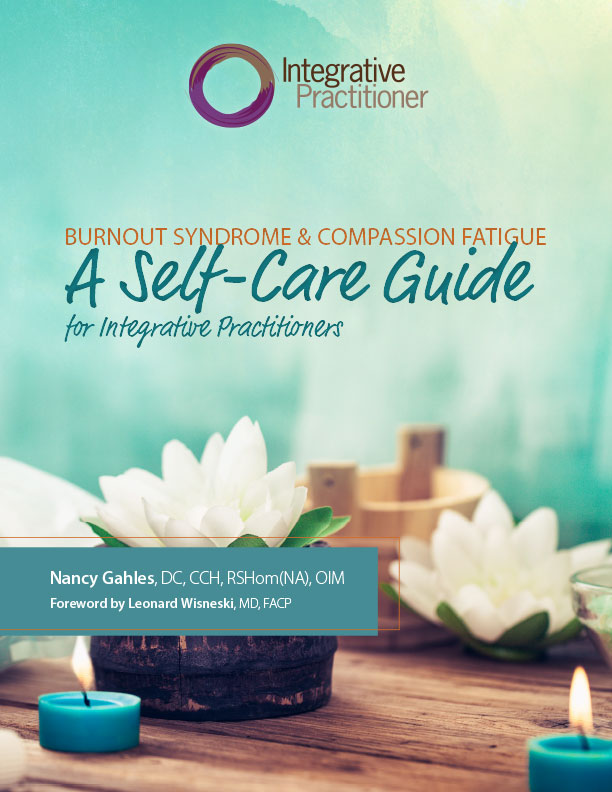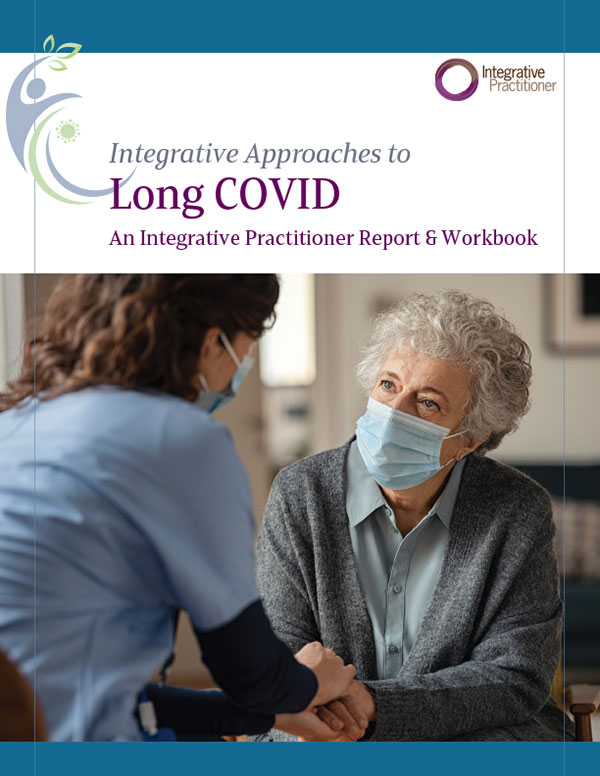Recent
July 23, 2024

Integrative Practitioner is pleased to bring you this Self-Care Guide for integrative Practitioners written by Nancy Gahles, DC, CCH, RSHom(NA), OIM. In this comprehensive digital resource, Dr. Gahles offers expert advice and several self-care techniques, which are evidence-informed and, if followed, will assist the healthcare provider with guidance regarding our own nurturing and life balance.

The National Center for Health Statistics (NCHS) from the Centers for Disease Control and Prevention (CDC) released data in June 2022 showing that more than 40 percent of adults in the United States reported having COVID-19 in the past, and nearly one in five of those are currently still having symptoms of long COVID. According to the CDC, post-COVID conditions are a range of new, returning, or ongoing health problems that people experience after first being infected with COVID. While most people get better within a few days or weeks, post-COVID symptoms start emerging at least four weeks after the infection. Anyone who was infected, the CDC said, can experience long COVID. And, according to University of California Davis Health, long COVID can affect anyone – young, old, healthy, and those struggling with other conditions. It has been seen in those who were hospitalized with COVID and patients with more mild symptoms.

Presented by: Mary Purdy, MS, RDN
The recent report from the EAT Lancet Commission on Healthy Diets From Sustainable Food Systems makes an excellent case for substantial dietary shifts needed to support both human and environmental health. Integrative practitioners are in an ideal position to help patients make diet and lifestyle changes that could greatly benefit planetary health. The key is how.

This edition of the Integrative Practitioner Digital Summit focuses on mind-body medicine.

This edition of the Integrative Practitioner Digital Summit focuses on immune health & detoxification.

Presented by: Robert Bonakdar, MD, FACN, FAAFP
With increasing attention on identifying safe and effective nonpharmacological approaches to pain management there has been increasing interest on the potential role of electrical stimulation devices, also known as electroceuticals. Although not new to the pain management, there has been a substantial increase in products marketed for over-the-counter, prescription, and in-clinic treatment of pain and related disorders. This session will provide background on the use of electrical stimulation in pain management and provide evidence overview of currently available approved technologies.

Clinical Application of Nutrition, Herbal Medicine, and Somatic Therapies in the Treatment of PTSD and Complex Trauma


Presented by: Josh Axe, DNM, DC, CNS
One major point people make when rejecting the benefits of Traditional Chinese Medicine (TCM) or Ayurveda is that there are few “gold-standard” studies that sufficiently prove their benefits. But for those of us who understand the practices, TCM and Ayurveda will never be effectively proven this way—they are based on an entirely different concept than nutrient isolations and randomized trials. By considering a person as a unique individual and using available resources to determine his or her needs, you can implement this system as a powerful tool in helping patients achieve total wellness by assigning them the specific herbs, therapies and dietary instructions that relate to their specific body and environment.

Presented by: Elizabeth Boham, MD, MS, RD
“Food first” is one of the key therapeutic approaches that functional medicine practitioners follow when supporting patients who have energy deficits. This session will review the Mito Food Plan and the importance of foods that contain key dietary oils, specific phytonutrients, and nutrients involved in mitochondrial function and cellular energy production. In addition, reduced caloric consumption has been found to enhance longevity and reduce the negative effects of advanced aging and will be discussed.